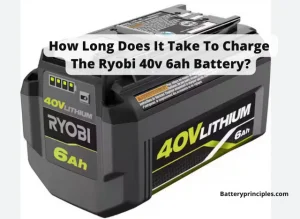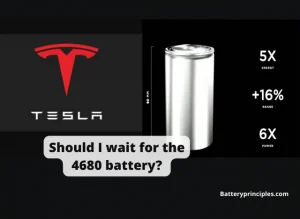We’ve all heard the saying “you should never put anything in your mouth that you wouldn’t put in your hand”, but what happens when you do? What happens if you get something like battery acid in mouth?
In this post, we will look at the harmful effects and symptoms of battery acid ingestion, immediate treatment, and safety measures that can be taken to prevent such incidents.
What is car battery acid – Introduction
First, we find out about battery acid.
Did you know that most batteries equipped with almost 90% of modern cars are lead-acid?
The acid in car batteries is sulfuric acid. That is why battery acid is dangerous.
In chemistry, sulfuric acid means any combination of H 2 SO 4 with water. Aqueous solutions of sulfuric acid are characterized by the mass fraction of H 2 SO 4 or SO 3 in them. Sulfuric acid is a colorless and odorless strong, corrosive mineral acid widely used in many industrial processes. It is also known as an oil of vitriol and hydrogen sulfate. Sulfuric acid is diluted with distilled water to 63% and 37% respectively in a lead-acid battery.
Chemical composition
Sulfuric acid consists of two hydrogen atoms, two oxygen atoms, and one sulfur atom. The sulfur atom bonds with two hydrogen atoms to form the sulfuric acid molecule. The two oxygen atoms bond with the sulfur atom to form the water molecule. The sulfuric acid and water molecules form the battery acid solution.
Sulfuric acid is used in batteries because it is the most active inorganic acid interacting with almost all metals and their oxides.
It serves as an electrolyte that transfers charge between the two electrodes, which is the basis for battery operation. When charging, the positive plates release electrons, and the negative ones accept lead oxide. During unloading, the opposite process takes place against the background of sulfuric acid.
Sulfuric acid is fire and explosion-proof, when it comes into contact with water, a violent reaction occurs with a large release of heat, vapors, and gases. According to the level of impact on the body, it belongs to the substances of the first group. (skin corrosion or irritation)
It is corrosive and can cause chemical burns if it comes into contact with the skin.
So, What Happens If You Get Battery Acid in your Mouth?
As mentioned earlier, you know battery acid is a corrosive substance but is not only corrosive but also poisonous. So if it accidentally gets into your mouth, it can cause burns and blisters in your mouth and can also damage your teeth and gums.
Ingested battery acid
Ingested battery acid can cause serious health problems even in small doses. If in high concentrations, it can cause serious damage to the throat and stomach.
Primary Symptoms
As immediate symptoms, you may experience a burning sensation in your mouth, throat, and stomach, as well as nausea, vomiting, abdominal pain, and diarrhea. You may also experience difficulty breathing, rapid low blood pressure, speech problems, vomiting of blood, dizziness, and lightheadedness. In some cases, you may face seizures or unconsciousness.
Moreover, if sulfuric acid is inhaled, it can have harmful effects on the upper respiratory tract and mucous membranes. It can also cause pulmonary edema, a serious condition. Symptoms of sulfuric acid inhalation include throat and nose irritation and shortness of breath.
Home treatments
Flush with water
The best thing to do is to flush with as much water as possible until a doctor is contacted. (if the acid is on the eyes or mouth).
Additionally, if it is on the skin or clothing, neutralize it with a soda or ammonia solution as soon as possible, and then wash the area thoroughly.
Does Night Light Save Battery In Laptops And Phones?
battery principles
How to neutralize battery acid in the mouth?
If the acid is present in the mouth, you can neutralize the acid with a solution of baking soda and water. To do this, mix a teaspoon of baking soda with a cup of water and swish it around in your mouth.
Do not vomit if battery acid is ingested. Give milk or water immediately.
Alkaline battery acid in mouth
Alkaline batteries contain a different type of acid than lead-acid batteries. Alkaline batteries contain potassium hydroxide, which is a base rather than an acid. Although potassium hydroxide is not as dangerous as sulfuric acid, it can cause burns and tissue damage if it comes into contact with your skin or eyes.
Alkaline battery acid in the mouth can damage your teeth and gums. If swallowed, it can cause serious health problems and sometimes even lead to death.
Especially children can easily swallow if not handled carefully.
Then the mouth, throat, and esophagus burn, nausea, vomiting, abdominal pain and swelling, and redness as side effects. (But there are other side effects too). If you or your child experience these side effects, it is essential to see a doctor as soon as possible.
Safety measures to be taken when working with lead acid batteries
There are several measures to help avoid serious hazards when working with lead acid batteries and battery acid:
At work
- It is necessary to work only in protective clothing. Do not work with acid in cotton clothing, and do not use cardboard or cotton rags. The acid has no or little effect only on synthetic compounds.
- Before starting work, put on rubber gloves and safety goggles and secure them well. Choose a room with adequate ventilation, and do not let children near you while working.
While battery charging
- When you are going to Charging, be sure to unscrew the plugs to release the gases that are very actively released during the battery recovery process. It is very important, as the acid breaks down and releases large amounts of oxygen and hydrogen. If they accumulate inside, the risk of battery explosion will be very high.
- While charging the battery, pouring electrolyte into a dry-charged battery, smoking nearby, or bringing direct fire is STRICTLY FORBIDDEN, this can lead to an explosion and cause harm to you and nearby people, as well as causing material damage to property.
- When using serviced batteries, sometimes you have to make the electrolyte yourself. When self-mixing, the acid must be poured into the water in a thin stream. Do the opposite – you can not pour water into acid in any case! Because there is a chance to the mixture may begin to splatter and drops of concentrated acid may fall on the hands or face.
- Since the gas released during the reduction reaction is very explosive, sparks should not be allowed to form in the room, the battery should not be charged near open flames, smoking areas, etc.
- When connecting the battery contacts to the vehicle, the ignition must be turned off.
- Before you disconnect the starter battery from the car, the ground wire is disconnected first, and when connected, on the contrary, it is connected last.
Lead-acid battery handling
Take necessary precautions when handling acid.
- If the density of the electrolyte is low, it is better to contact a specialized service and not try to do it yourself. Working with sulfuric acid without the necessary training and knowledge can not only permanently damage the battery but also harm your health;
- Batteries are heavy and awkward to handle, so they can cause excessive strain on the body, as well as possible battery fall, resulting in possible acid leakage, injury, etc.
- So, Always use proper lifting procedures to avoid excessive strain on the body. Always use the handles or lifting straps, if present.
- Never attempt to repair or reuse a damaged battery.
- If a damage assessment is required, it should be done by a well-trained technician under appropriate conditions and according to the manufacturer’s instructions.
Lead-acid – Battery storage
© firestonecompleteautocare
- The acid should be stored out of the reach of children and pets, in a closed original package, away from fire and direct sunlight. In the case of a battery, the battery case must be without external damage, and the lids of the jars must be tightly screwed on.
- Never try to repair the battery case 90% of the time, such repair is futile. The plastic from which the battery case is made cannot be soldered or glued.
Disposal of batteries and associated waste
Lowe’s corporate recycling center
Besides the fact that battery acid is dangerous to your health, it is also bad for the environment. An old battery dumped in a landfill or spilled electrolyte can pollute groundwater, causing an environmental disaster.
Therefore, the recommendations of specialists are as follows:
- Dispose of exhausted batteries and any waste deriving from acid leaks or fires by the national laws in force regarding environmental protection.
- If you have an old battery, don’t throw it in the trash, but look for specialized dumps (or stores that accept old batteries). Since batteries are hazardous waste, disposing of them in landfills or containers can cause environmental disasters. Over time, the electrolyte in the battery spills and pollutes the soil and groundwater.
- By relocating your old battery to designated places, you’re not only taking care of the environment and other people’s health, but you’re also helping the economy, as rechargeable batteries can be recycled.
Conclusion
Battery acid (Sulfuric) is a hazardous liquid diluted with water. A word like “ACID” should bring to mind danger. We believe that you understand what happens if you get battery acid in your mouth or ingest it. However, remember: No matter what you do, Dutch philosopher Desiderius Erasmus said prevention is better than cure.
Answers to frequently asked questions about battery acid.
What happens if battery acid gets on my skin?
If the electrolyte is used without protective equipment (gloves, respirator, and goggles), a chemical burn will form on the contact of the acid with the skin.
1. Can someone who has ingested battery acid be cured?
It largely depends on how much acid is ingested and how quickly it is diluted and neutralized.
2. are the long-term effects of battery acid ingestion?
Acid ingestion can cause damage to the esophagus and stomach for several weeks, and treatment may require the removal of part of the esophagus and stomach. Death may occur after a month if the damage is high.
3. How do you know if the battery is inhaled?
Unfortunately, there is no medical test that can help determine if you have inhaled sulfuric acid. It has been found that inhaling such an acid can increase the acidity of saliva, so measuring the pH of the mouth can reveal whether you have been exposed.
4. What agencies can be consulted in case of acid ingestion?
If you are in the United States, call 1-800-222-1222 to report an acid ingestion incident to a local poison control center. Through that, you can contact poison experts. They will guide you and give you additional advice. In addition, more information can be found on these websites.
https://www.poisonhelp.org/help/
5. Can Battery acid cause cancer?
Studies show that acid mist containing sulfuric acid can cause cancer. The risk of cancer depends on the level and duration of exposure.
6. Does prolonged exposure to battery acids cause fertility problems?
There is a theory that constant exposure to this substance can lead to infertility, however, there is no definitive study or investigation that shows this to be a reality.
7. Apart from the car battery, what is sulfuric acid used for?
It is usually used to remove impurities from explosives, oil refining, or metal surfaces. And in your home, it can be found in some detergents, fertilizers, and even toilet bowl cleaners






